Recent research indicates that a significant proportion of American workers continue to struggle with taking adequate breaks during the workday. According to a 2021 survey by Tork, only 38% of workers take a full lunch break. This is concerning, as skipping breaks can have negative impacts on both employee well-being and productivity. Additionally, the survey found that 23% of workers feel guilty for taking a break, while 20% feel unable to take a break due to their workload. Shockingly, the majority of workers (58%) reported eating lunch at their desks, which can lead to increased workplace stress and decreased job satisfaction. Due to the demands and pressures employees face on a day-to-day basis, workplace stress is not uncommon.
Such pressure and stressors can result in increased health related problems causing employees to engage in risky behaviors such as alcohol use to cope with work related pressures. Such behaviors can result in many consequences to both the employee and the employer.
Employee alcohol abuse has become a growing concern within the workplace. Although employees may engage in risky behavior such as drugs and alcohol for many reasons, workplace stress and pressure are oftentimes the cause for such behaviors.
As a result, employers are challenged in finding approaches that can deter employee alcohol abuse to foster a safe workplace environment.
Benefits of Scheduled Breaks
Although there will always be work to do, employees need a break within their day to decompress, reenergize, and be able to effectively handle work related problems. When employers implement scheduled breaks within their staff work schedules, employees are better equipped to fulfill their job responsibilities. It is important employers appropriately implement scheduled breaks to ensure policies are not misused and employees are given the opportunity to take advantage of scheduled break policies to be most effective on the job.

Evaluating current practices can be beneficial in enforcing company guidelines which can be helpful to both to the employee and the employer. Here are some of the top benefits commonly associated with scheduled breaks within the workplace:
- Enhances productivity.
- Facilitates creative thinking which enhances performance and reduces mental exhaustion.
- Fosters positive morale within the workplace and encourages job satisfaction.
- Useful in helping employees rejuvenate and break away from day-to-day pressures.
- Promotes effective coping and stress reducing techniques.
- Encourages healthy living and employee wellness.
Recent statistics show that alcohol abuse in the workplace can have serious consequences for businesses. According to the National Council on Alcoholism and Drug Dependence (NCADD), employees who abuse alcohol are more likely to be absent, have higher healthcare costs, and have lower productivity. In fact, it is estimated that alcohol abuse costs businesses up to $249 billion per year in the United States alone. Such risky behaviors by employees can expose employers to various legal liabilities and safety risks, making it essential for businesses to implement effective policies and prevention measures to address alcohol abuse in the workplace.
Employers can take a proactive approach to address employee alcohol abuse by implementing creative and straightforward prevention strategies. For instance, incorporating scheduled breaks in the workday can not only enhance productivity and morale but also help detect early signs of alcohol abuse among employees. By providing employees with opportunities to take a break and recharge, employers can create a supportive work environment that promotes healthy habits and reduces the risk of drug and alcohol abuse. Ultimately, such preventative measures can assist in deterring employees from engaging in risky behaviors and contribute to a safer and more productive workplace.

.png?width=500&height=500&name=Blue%20and%20White%20Classic%20Shield%20Financial%20with%20Star%20Logo%20Design%20(1).png)


